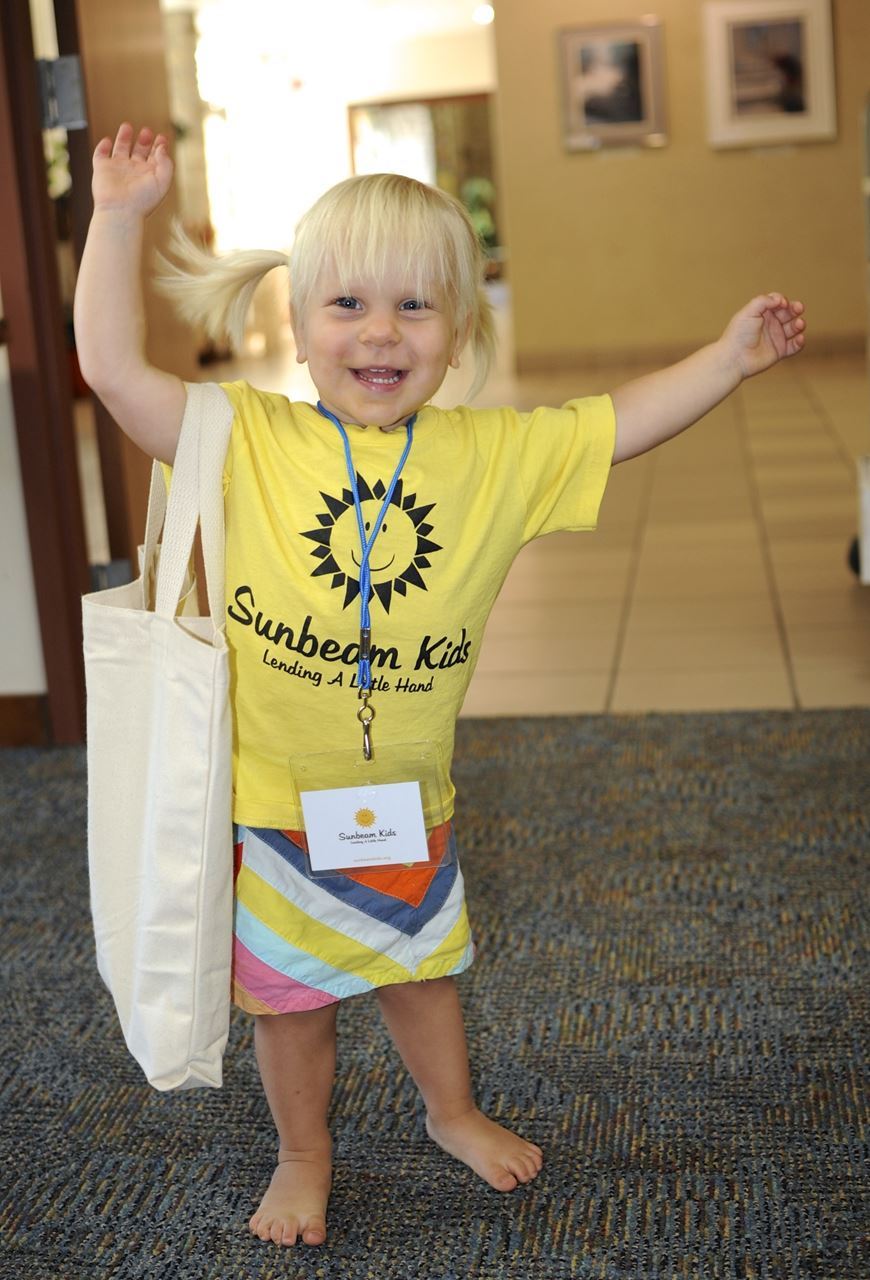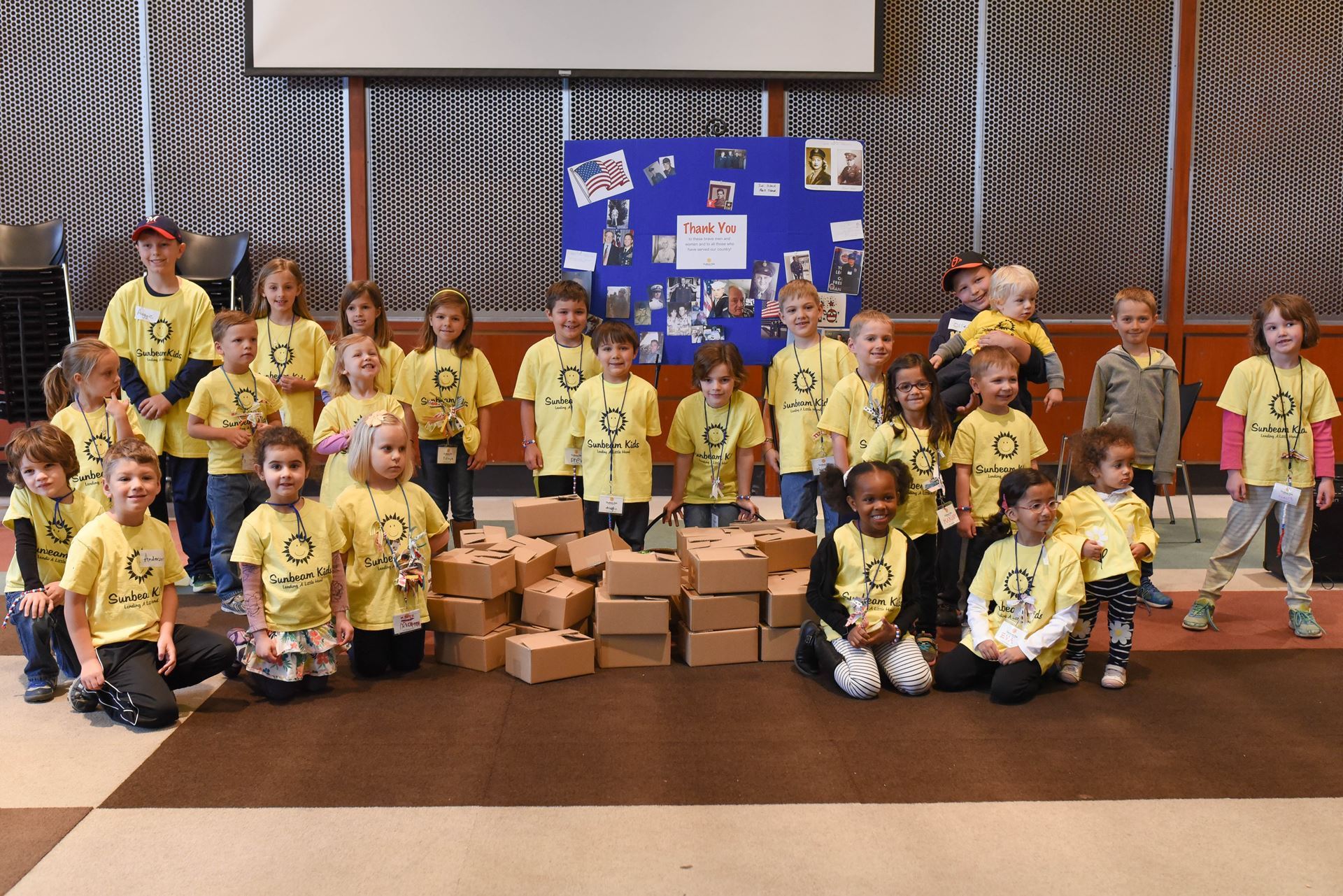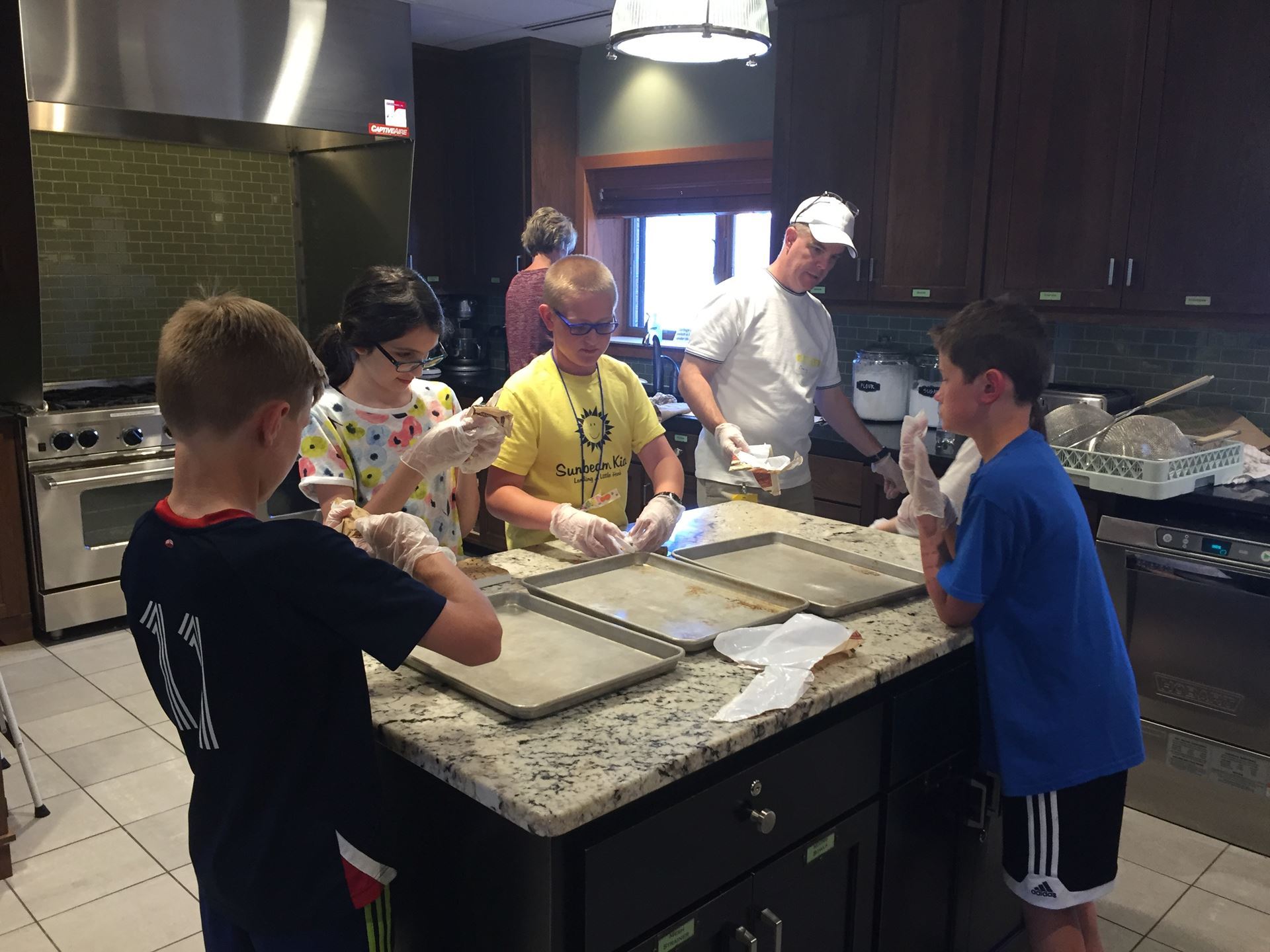If you’ve spent time volunteering as a family with Sunbeam Kids or with other organizations, you already know how lending a hand is a win-win-win. You get to be together with family and friends, help others in need and improve your community (and beyond!).
You probably know that for the most part, your children get the same benefits you do, but have you given any thought to the ways volunteering can help your children at different stages of development?
You know that volunteering helps to foster a sense of empathy, confidence that they can make a difference and responsibility to be a kind member of the community, but how does that change by age as they develop? Let’s take a quick look at how volunteering can affect children of various ages based on what we've seen over the past five years.
Volunteering with toddler and preschool age kids: 
When volunteering with your younger children, they may not understand the details of the project, but with a little bit of conversation in the car on the way to the project to set it up in their minds, they know they are going to help someone and/or do something good.
Through these hands-on project experiences, they start to learn compassion and empathy for others. Seeing that there are others around them who don’t have as much as they do will instill a sense of gratitude, even if they’re not yet able to express it in so many words. Or, being a part of a park cleanup where they hold a bag or use a fun “pincher” tool to help pick up trash helps them learn that they can be part of the solution. It may be slow going in terms of filling that garbage bag, but the learning is the key here. They get great joy and confidence from the positive reinforcement parents and others offer when they help.
Also, being exposed to different kinds of people will teach them tolerance and patience. They’ll learn from an early age how important community involvement is, and they’ll see firsthand what a difference each person can make. They’ll also begin to develop a sense of self-efficacy, as they’re shown how to do certain tasks, then manage to complete them on their own. These skills are huge in developing their sense of self confidence.
Volunteering with grade school age kids:

Building on the same concepts as discussed with the younger kids, volunteering with grade school kids can be fun and rewarding. Through school, sports, books and electronics they are starting to understand that there is a big world out there and they are curious about it. Volunteering together helps you are parents or caregivers shape the concept that they have a role to play in their community. Every day we each impact ourselves, our family and our community…and we choose whether that’s a positive impact, or not. When we show how great it feels to play a positive role, and then reinforce what a great job they did, it helps them want to do it more often in their daily lives.
Parents can lead by example that even with work, sports games, band concerts, dance recitals, etc. that your family is a family makes time for helping others. Even if it’s a few times a year, kids pay attention to how parents prioritize their time. And projects don’t even have to be formal or big! Secretly shoveling a neighbor’s sidewalk before they get home from work or bringing dinner to someone who just had a baby or lost a loved one, both show your kids that you are not looking for thanks and praise, but are just looking to lighten someone’s burden.
The great thing about this age is that they start to understand the social concepts and make a deeper connection to the project. While we keep things pretty light (and always neutral ground) at Sunbeam Kids projects, the kids of this age are starting to ask more questions of their parents. Discussion after the project starts to become more important to try to spark because they are absorbing bits and pieces of the message and may need help synthesizing it all in their heads. For example, when we help programs that serve children in the foster system, some children may wonder if they too could end up in the foster system. They don’t always know how to articulate these questions, or are afraid it will sound “dumb.” Opening the lines of communication to talk about the project and share your thoughts can help draw their feelings out of them.
Volunteering with tweens:

Once your kids get a little older, closer to preteen age, they’ll get even more out of the volunteering as a family. Not only will they continue to build on the skills and benefits they’ve already developed, they’ll get an even deeper set of problem-solving skills, developing confidence in their own decisions and abilities.
This age group sometimes feels stuck between a kid and a teenager. Letting your kids choose the charity or organization your family volunteers with, even trying out a few different ones, will allow your preteen to begin to get a sense of what causes they care about and what they’re passionate about. And, the fact that they know you take their interest in these causes seriously can go a long way in terms of confidence building for them because you are "treating them like an adult.”
We think this is such an important age for kids to be volunteering, that we've started to set up project specifically for kids ages 9+ so they can take on a greater role, as they are here in the picture of a group making dinner for guests of the Ronald McDonald House.
Volunteering with teenagers:
While there are benefits of volunteering as a family for all ages, teenagers may just get the most out of volunteering. In fact, there are so many benefits, and it’s so important, that many high schools or clubs require students to have a certain number of volunteer hours to graduate.
Volunteering will help your teenager develop critical thinking skills, and how to communicate with people at all stages of life and levels throughout the community. Through this, they’ll learn new skills that they can apply later in life.
For example, communication skills built while setting up a volunteer time slot can help when they start to apply for jobs. Or, a more hands-on example may be that volunteering to help build houses will give them skills they can use later when their own apartments or homes need minor work. This gives confidence of self sustainability, while also confidence that they can make a difference to others. Even thought we are big advocates of volunteering as a family (even across generationsAn important part of volunteerism as a teenager is that it’s starting to form the concept that they can be members of the community on their own, not just with their parents.
Another benefit of community service for teenagers is that they will meet new people – people they wouldn’t have had the opportunity to meet otherwise. And by meeting those new people, they’ll be exposed to a diverse population, breaking out of their own bubbles, and hearing stories of people who had very different upbringings from their own.
Beyond the social benefits to volunteering, your teenager will also gain valuable experience that can only help them when they apply to college, or for jobs. There are certain scholarships that are specifically given to student volunteers. They can put that experience on their resumes forever, which will only give them a leg up in a world where employers are increasingly looking beyond GPAs and direct job experience.
There are so many ways volunteering can help your child develop into a responsible, caring, well-rounded adult.
However, it can sometimes be difficult to find age-appropriate opportunities. If you need ideas check out our Past Projects page. Or, if you’re in the Greater Milwaukee area and you want to check out Sunbeam Kids, we welcome kids and families of all ages to join the fun.
Together, we can give our kids confidence that they can make a difference by lending a little hand!